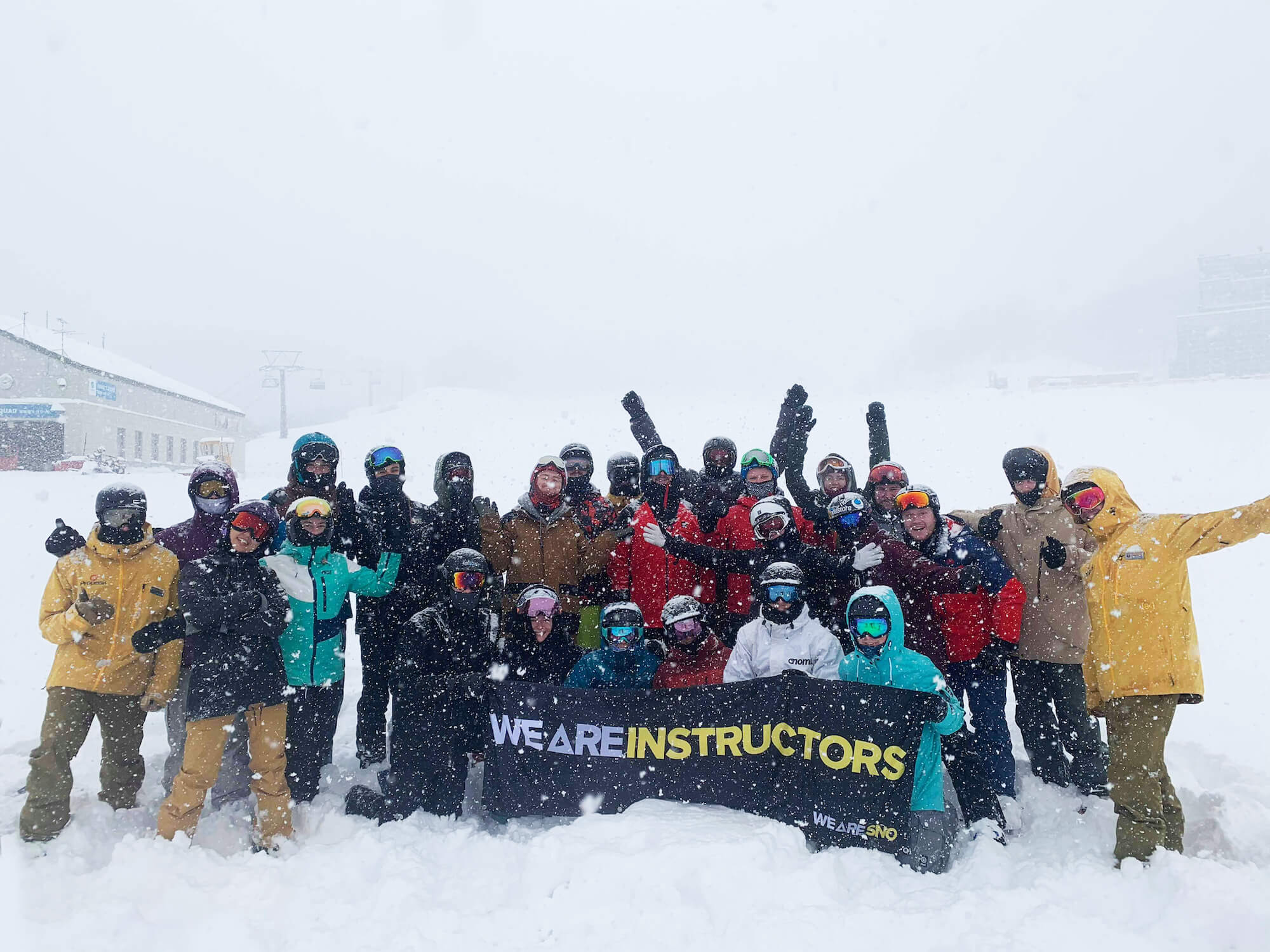Planning For A Ski Season In Japan - What You Need To Know
Choosing your resort
Japan has around 600 resorts in total, ranging from large, award-winning, internationally renowned ski resorts, to micro ski slopes servicing locals at the weekend. Not only does the size of the resort vary greatly, but depending on where you are, the snow conditions and terrain can be very different.
If you’re an advanced rider seeking deep powder conditions, then the resorts of Hokkaido should be of interest. In particular, the resorts in and around the Niseko area. These resorts are famous globally for large quantities of light, dry, powder snow, receiving up to 20 metres each year. Hokkaido resorts are easily accessed via flights into Sapporo/New Chitose airport (CTS), then either a short bus or train to your chosen destination. Each winter hundreds of international seasonal workers arrive in Niseko to service the large ski tourism industry, this may be a good place to start if you’re new to Japan.
If you are looking for semi-reliable powder conditions, but are more interested in steeper, more advanced terrain, the south island of Honshu may be worth considering. Here you have a large choice of resorts including several resorts in Hakuba, Myoko or around Nagano. The advantage of doing a season on the main island are the direct transport links to Tokyo and both of its international airports. Hakuba Valley is probably Honshu’s most popular ski area, with large amounts of international travel and work opportunities.
You can find more information on comparing Japanese ski resorts on Powder Hounds.
Finding Jobs And Work In Japan
If you choose one of the more established ski areas in Japan finding work shouldn’t be so difficult. Each year hundreds of employers post job opportunities online - applications typically open around May. The majority of employers will be happy to accept online applications and interviews. It’s best not to assume you’ll be okay to arrive and find work as easily.
Some of the popular resort jobs in Japan include:
Drivers
Hotel workers (housekeeping, concierge, front desk)
Bar workers
Lodge Managers
Retail assistants
Restaurant workers
Ski/Snowboard instructors
Lift operation is always done by Japanese nationals, so don’t expect to find this type of work.
Another option, if you’re unqualified in many of these fields, would be to join a ski or snowboard instructor internship, like the one WE ARE SNO run in Niseko. This is a fast-track instructor training program which not only trains and qualifies you but also guarantees a ski or snowboard instructor job for the season.
Depending on the type of work, you could expect to earn between ¥1,200-2,000 per hour. Higher skilled work tends to command a higher rate of pay, and the amount of hours will vary from job to job.
Extra tip: Read over the resort job guides for a more information on what it is like to work in Japan.
Accommodation
If you want to stay all season, you need to have a bed to sleep in. Some employment comes with the guarantee of staff accommodation, some doesn't. It's always wise to check this prior to accepting a job as affordable accommodation can be difficult to source. An alternative if a particular employer doesn’t offer accommodation would be to locate the seasonal workers Facebook group for the resort. There are often posts on with options for house shares, spare beds etc.
Extra tip : Make sure you understand the local area before you agree to an accommodation option, you want to know you’ll be close to transport links to get to work and the mountain easy enough.
Visas
To work a winter season in Japan you will need a suitable work visa. There are two common types of visas, either working holiday or sponsorship. Not every country is eligible for a working holiday visa, so you should check here first.
As well, as having a passport associated with one of the eligible countries, you must also:
Be between 18-30 years old
Have enough funds to support your trip
Be in good health
The full visa terms can be found in the link above. The application process can also be a bit confusing, so take it slowly to avoid costly mistakes.
Sponsorship visas require you to be highly skilled in a particular field or already have an employer in mind to help with the process.
Other Important Information
While Japan is a popular winter destination, it can be challenging at times to travel around and communicate with locals. Outside of the main tourist areas few Japanese people speak English. If you’re planning to spend a season in Japan, be sure to embrace the culture, experiment with the amazing cuisine, stay safe in the snow and enjoy the insane snow.
Save this for later on Pinterest!
Ed is a director for WE ARE SNO and the Japan program manager. Ed has worked winter seasons in France, Japan, New Zealand and Australia, and now helps other skiers and snowboarders make their passions their career.










